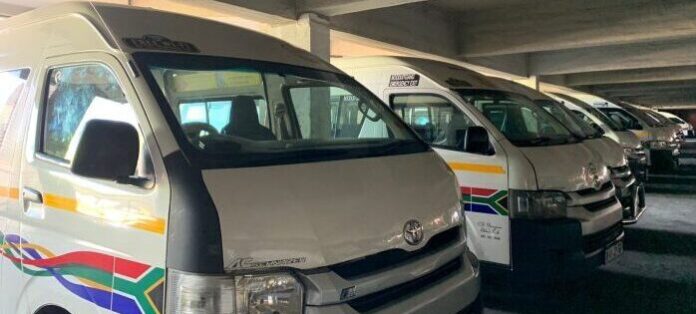The concerning number of problems with scholar transport in the North West has prompted the South African Human Rights Commission (SAHRC) to investigate the matter.
Recently, the province has been plagued by unresolved scholar transport issues. So bad that some pupils forced to walk long distances to school.
The North West portfolio committee on community safety and transport management has also visited several schools in the province. They discovered that more work remains to be done by the province’s education and transport departments. Specifically towards resolving the scholar transport problems.
Commission still probing the issue
Speaking to Sunday World, SAHRC’s provincial manager Shirley Mlombo confirmed the matter. She said the commission will soon announce what they have discovered in terms of the investigations.
“The commission is currently busy with a systemic investigation on scholar transport in the province. Such conditions violate learners’ rights. This includes… their rights in terms of sections 12(1)(e) and 28(1)(d) of the Constitution,” she said.
Some of the impacted pupils are those in Madibe a ga Molema outside Mahikeng. Primary school level pupils are subjected to travelling nearly 5km to Tshunyane village. Most parents decided to hire taxis, which they pay R250 monthly to ferry the children to school.
Some children at Phakedi Primary School have not attended school since the March school holidays.
“According to existing policies, scholar transport is only provided where children are more than 5kms away from the nearest school. The schools in question should apply for the provision of scholar transport for the affected learners.
“To the extent that the transport provided is not roadworthy or overcrowded, parents should report these. They can report these to the Department of Basic Education and Department of Community Safety and Transport for redress. If they are not assisted, they can report such matters to the commission,” Mlombo said.
The North West education website reports that deep rural and farm areas are battling with access to education.
Deep rural villages battling with scholar transport
“Factors such as long distances learners have to walk to the nearest school, geographical planning of rural settlements, and slanted provision of infrastructure (schools) during the apartheid era deprived children in these areas access to basic education. And presently the problem persists,” the website stated.
The department said in response, Learner Transport has been established as one of the fundamental pillars. This for pupils to exercise their constitutional right of access to education.
“In the North West, the department of education is responsible for determining the total need for learner transport in deserving schools. The department of community safety and transport management oversees the implementation of learner transport. This is done at the school level by procuring services. Learner transport in the department of education falls within the directorate of learner social support services.”
All pupils in farm schools and deep rural areas between Grades R and 12 are encouraged to apply for scholar transport. This refers to South African pupils who have to walk more than 3 – 10 km to the nearest school.
Visit SW YouTube Channel for our video content



